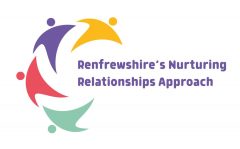Becoming involved
An Educational Psychologist (EP) may become involved when support is needed to work out what is getting in the way of your child’s learning or development and/or what could help your child. The nursery or school that your child attends will already have gathered assessment information and put in planned supports through their staged intervention process before the decision is made to ask for EP involvement. You can find out more about the process for this, including how information about your child will be used here.
Prior to involvement from an educational psychologist, the parent/carer must provide verbal consent to the nursery or school.
The support coordinator will discuss the request for support with the EP. The EP may agree that it would be helpful for them to become involved, or they may suggest a different service would be more helpful at that time.
Understanding ‘the problem’
EPs know that by the time they’re asked to be involved, ‘the problem’ can be or seem complex and messy. Often we’re asked to work in situations where the problem has been around for a long time. Although the people we work with often really want the problem to stop or go away, it wouldn’t be fair to arrive at a school or nursery and assume that there are easy actions that need to happen and everything will be fine.
Strategies and interventions will have been tried but, for whatever reason, the situation hasn’t improved. Discussing this with an EP, who can use psychology to help unpick the factors involved, may help towards working out what to try next.
EPs won’t be able to ‘fix’ the problem or tell the adults how to solve all difficulties that a child or young person might be experiencing. Often change only happens in small steps.
But by working together and sharing expertise, we can help to make sure that any actions or next steps will be right for that child at that particular time
Working together
Every child is unique, as is every class, keyworker, teacher, parent or carer and so every solution needs to be carefully considered and any suggestions need to be right for everyone involved. While certain suggestions or actions might be right for an establishment, they might not be right for a particular child. EPs will most often want to work with different people to jointly solve a problem. Teachers and keyworkers have expertise about their nursery environment/classrooms and the curriculum. Parents and carers have expertise and knowledge about their children. EPs have expertise in child development and psychology.
Coming together and sharing all this expertise is the best way to solve problems, but we’re also aware that this isn’t a quick fix process. In our experience one of the most powerful steps forward is having a shared understanding of what is going on, and what changes we would like to see in the future. Team Around the Child (TAC) meetings can help us to do this by developing an action plan which clarifies the needs of the child or young person and the strategies which will be used to support these needs.
EP assessment – what does this mean?
EP assessment can be any number of things which help to develop a holistic understanding of a child’s life – their needs, views and perhaps more importantly, their strengths
This can make the term ‘EP assessment’ quite confusing, as no two EP assessments will be the same. Really, an EP assessment is anything that an EP does to try and make sense of the situation.
We know that every child is different. They have their own needs, strengths, skills and aspirations. Also, every family, school, nursery, classroom and teacher is different. With all this difference it wouldn’t make sense if an EP did the same thing with every situation they worked on.
Meeting with all involved and working collaboratively with those who know the child or young person best is a key part of an EP assessment. Sometimes this might be all that is needed to develop an action plan to support the child or young person.
This leaflet gives more information about the collaborative assessment approach taken by EPs in Renfrewshire, including ways in which EPs may gather information about a child/young person’s needs.
[Credit: O’Hare, D.P. (2021, October 22). Educational psychology. edpsy. https://edpsy.org.uk/about/educational-psychology/ – Some words have been changed to reflect the specific context of Scottish Educational Psychology Services]


